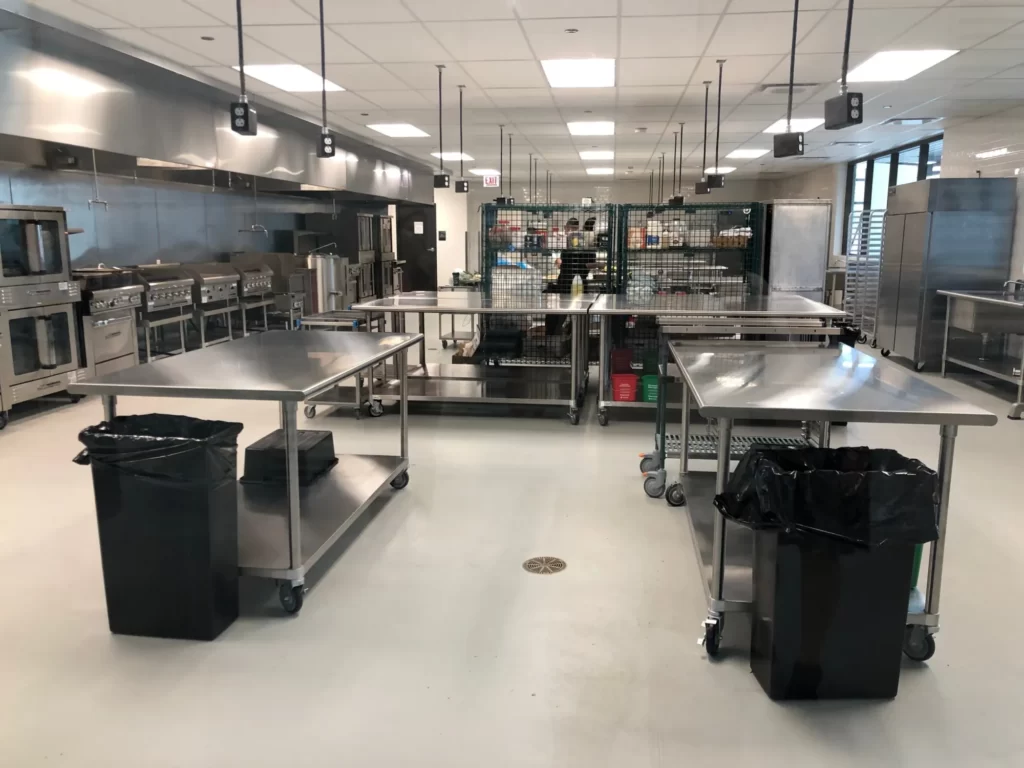A licensed business space that is certified for food processing is referred to as a shared-use kitchen. Renters and members can use the kitchen for an hour or a day to prepare food according to regulatory requirements. Chefs, caterers, food truck owners, bakers, and value-added producers can benefit from the communal kitchen rather than investing resources in building or leasing their own facilities. A commissary kitchen is a shared-use kitchen that rents out kitchen space. Kitchen incubators, sometimes known as culinary incubators, rent out kitchens and offer other services such as business development training and access to legal help, packaging, label printing, and distribution.
Cooking incubators and shared kitchen facilities are evolving, growing, and innovating quickly. It’s an exciting time for an industry disrupted by technology and receiving greater media attention.
Food entrepreneurship has risen across the United States due to investments and interest in the area. The 2002 Farm Bill included $27.7 million in competitive grants to assist the development of value-added food production and the establishment of Agriculture Innovation Centers “to foster agricultural producers’ ability to realize the benefits of creating and marketing value-added products.” [2] These early investments may have sparked a new sector of community-driven food businesses, with a technical help infrastructure to back them up. As a result, the number of kitchen incubators (facilities that provide technical assistance to food entrepreneurs) in the United States increased by more than 50% to over 200 between August 2013 and March 2016.

Image Credits: cinilittle
Business incubators help businesses grow and stay in their communities by lowering startup costs and providing a nurturing atmosphere. The culinary incubator has reimagined a tried-and-true model by replacing office space with kitchens. In a shared kitchen, three types of business models are used. Kitchens for shared use, incubator kitchens, and food accelerators are all available.
The sale of food not manufactured in a licensed facility is prohibited by FDA and state regulations in all three business models.
Culinary startups are unlikely to be funded by venture capital or banks since profit margins are too thin and variable in such a competitive field. Before being economically viable, food products must be tested and changed over time.
Even if a business is feasible, it must first pass a complex network of regulation, packaging, and distribution before it can be lucrative. This type of entrepreneur frequently lacks business experience and a grasp of the startup process. The cost of starting a business in the food industry is considerable, ranging from $15,000 to $100,000 as of 2013.

Image Credits: thespoon.tech
The overall trend shows that shared facilities are becoming more popular. More users are creating a more extensive range of products, and renters and operators are becoming more professional. The same problems, such as managing and maintaining operations with limited resources and budgets, persist.
More budding food firms are turning to shared kitchens for help with product testing and formalizing business operations.
Is your business in need of some food service consultants? Don’t worry. At HPG Consulting, our team of qualified consultants is ready to help. With our valuable guidance, you’ll achieve your business goals in no time! Invest in what matters most: your own business success! Reach out and find out more about our services today. Fill out our contact form or simply call +91-911-202-627.